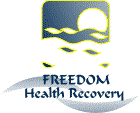 WATER THERAPY  Tao Water Blessings for Healing 
HOW DO YOU GET DEHYDRATED? Through activities of daily living, the average person loses about 3- 4 liters (about 10-15 cups) of fluid a day in sweat, urine, exhaled air and bowel movement. What is lost must be replaced by the water/ fluid we drink and the food we eat. We lose approximately 1-2 liters of water just from breathing. The evaporation of sweat from the skin accounts for 90% of our cooling ability. Exercise, sweating, diarrhea, temperature, or altitude can significantly increase the amount of water we lose each day. The most common cause of increased water loss is exercise and sweating. Even though we are all at risk of dehydration the people most vulnerable are infants, elderly adults, and athletes. They are either not able to adequately express their thirst sensation or able to detect it and do something in time. HOW DO YOU KNOW IF YOU'RE DEHYDRATED? If you are thirsty, it means your cells are already dehydrated. A dry mouth should be regarded as the last outward sign of dehydration. That's because thirst does not develop until body fluids are depleted well bellow levels required for optimal functioning. Monitor your urine to make sure you are not dehydrated:
The effects of even mild dehydration include decreased coordination, fatigue, dry skin, decreased urine output, dry mucous membranes in the mouth and nose, blood pressure changes and impairment of judgment. Stress, headache, back pain, allergies, asthma, high blood pressure and many degenerative health problems are the result of UCD (Unintentional Chronic Dehydration). HOW MUCH WATER DO YOU NEED TO DRINK? WHEN TO DRINK? To better determine how much water you need each day, divide your body weight in half. The answer is the approximate number of water ounces you should drink daily. You should drink half of your body weight in ounces. If you weight 200 pounds, you should drink 100 ounces water (3.13 quarts, 2.98 liters or about 10-12 cups of water a day). If you weigh closer to 100 pounds you will need only about 50 ounces of water or about four 12-ounce glasses daily. Individuals who are physically active or live in hot climates may needs to drink more. WHAT SHOULD WE DRINK? WHAT SHOULDN'T WE DRINK? We are designed to drink pure, natural water.
CAN WE DRINK TOO MUCH WATER? During intense exercise the kidneys cannot excrete excess water. The extra water moves into the cells, including brain cells. The result can be fatal. For that reason, athletes should estimate how much they should drink by weighing themselves before and after long training runs to see how much they lose, and thus how much water and salt they should replace. The studies that found 13% of the runners tested drank too much water, resulting in abnormally low blood sodium levels. The low sodium levels made many of these people very sick, and close to the point of death. The importance lesson here is to balance your water intake with your sodium intake. DRINKING TIPS FOR HEALTHY HYDRATION: Start your morning's right: Morning is when you are most full of toxin and dehydrated. Reach for a big glass of water first thing in the morning - even before coffee. This water in the morning really gets the blood flowing. - Drink a glass of water when you get up and another when you go to bed. - Take regular water break breaks. - Avoid relying on sodas to provide your fluid need. - Drink water before and after food; ideally drink a glass of water half an hour before you eat your meal and half an hour after the meal. You can drink water with meals, and drink water anytime your body feels like it. *It is very important you balance your sodium intake with your water consumption. Take 1/4 teaspoon of salt per quart of water - every 4-5 glasses of water. Be sure to get sea salt. The best is Celtic sea salt or Himalayan sea salt, both of which are readily available at any health food store. You should always drink water prior to eating, and after eating, to support the digestive process. The stomach depends on water to help digest food, and lack of water makes it harder for nutrients to be broken down and used as energy. The liver, which dictates where all nutrients go, also needs water to help convert stored fat into usable energy. If you are dehydrated, the kidneys turn to the liver for backup, diminishing the liver's ability to metabolize stored fat. The resulting reduced blood volume will interfere with your body's ability to remove toxins and supply your cells with adequate nutrients. Keep a water bottle by your side at all the times. Use pure, natural water, and carry it with you everywhere, to the gym, in your car, to your office. Start by adding water to your daily regiment, during the first week, and then incorporate more as needed. The point is not to wait until you're thirsty to drink. Keep water flowing before, during and after workout. Don't forget to balance your water intake with sodium intake. Drink at least 1 liter of water for every 60 minutes of exercise. Drink more if it's hot. During exercise, such as playing sport on a hot summer day, you can lose up to 2 liters per hour of fluid per hour. Water and a balance salt is your best bet to keep healthy and hydrated. During exercise, it is recommended to replenish fluid at least every 20 minutes The above article was taken from Dr. F. Batmanghelidj' website at WaterCure.com NOTE: A Testimonial on the miracle of alkaline water:
The above testimonial attests to the miracle of alkaline water, a very important adjunct therapy used with other alkalizing Classical Chinese medicine modalities (such as acupuncture, herbs, qigong, qi-healing, meditation, exercise, diet, acupressure, counselling) in the Freedom Health Recovery holistic program for treating the root cause(s) of drug addiction. This 50 year old Japanese water technology is another first innovation for Freedom Health Recovery that ensures unequalled success when it comes to recovery from drug addiction! Contact Ricardo B. Serrano, R.Ac. at 604-987-1797 or email for consultation and appointment to get a free gallon of alkaline hexagonal kangen water.
   
  For tech support, contact webmaster |

